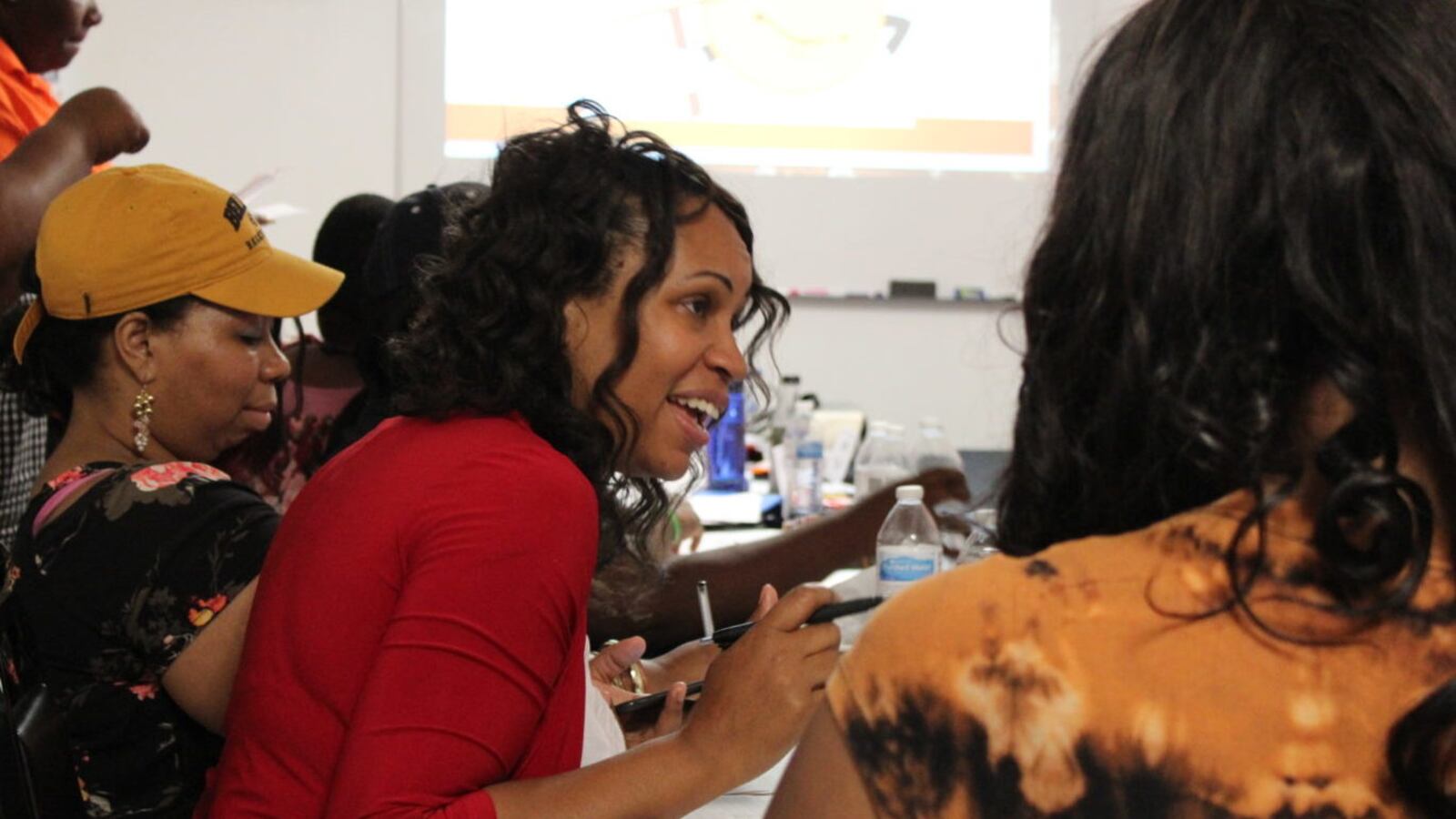While their children are out of school for the summer, a local parent group is using this time to hit the books.
Memphis Lift, a non-profit organization in North Memphis, aims to amplify the voices of those who, some say, have historically been excluded from conversations surrounding their schools. Many of those conversations, said organizer Dianechia Fields, have made out parents like her to be “scapegoats” for students’ struggles in the classroom.
“It’s easy to blame someone who’s not there in the room,” she said. “Instead of blaming parents as the problem, we’re inviting parents to the table to be part of the solution.”
Fields is the director of the program’s Public Advocate Fellowship, which was created three years ago by Natasha Kamrani and John Little, who came to Memphis from Nashville to train local parents to become advocates for school equity.
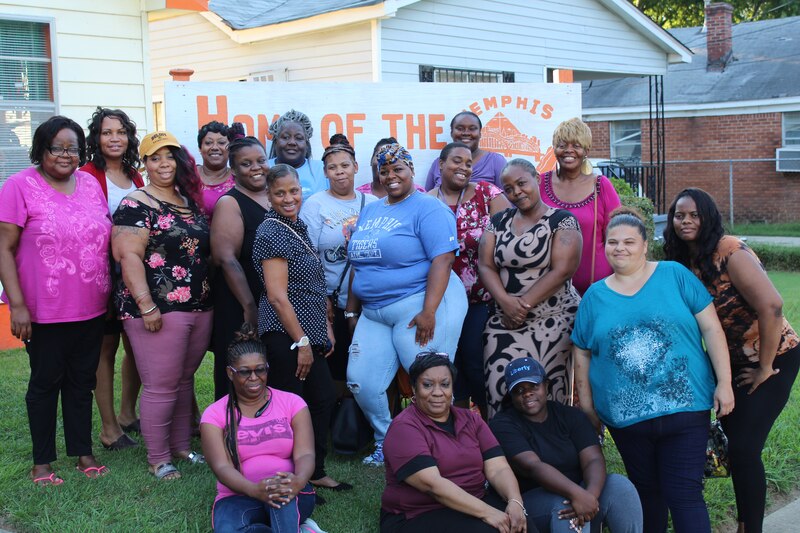
On Tuesday, Lift held the first of ten sessions for its ninth cohort of fellows. This month, 19 parents and grandparents will learn about topics such as the history of education in Memphis and school funding. At each session, they’ll receive coaching from special guests and alumni fellows, and they’ll also make connections with local education leaders.
In order to better communicate with decision-makers, the group will complete public speaking exercises with the help of coach Darius Wallace. His focus this week: getting fellows to “share their hearts.”
In Wednesday’s class, Wallace asked the cohort to think hard about who they’re advocating for, what pain that person may feel, and what their dream is moving forward. Here’s what a few of them had to say:
Jerrineka Hampton, a Shelby County Schools worker, is advocating for students in her Memphis school who often lack access to the materials they need, like pens or paper. Her dream is to “close the economic and academic gap” in schools like hers, and to help train others to do the same.
Shanita Knox, a mother of two, is advocating for her 10- year- old son, who struggles with his speech and is often bullied because of it. Her dream for him is to “do whatever he wants in life without having to work a dead-end job.”
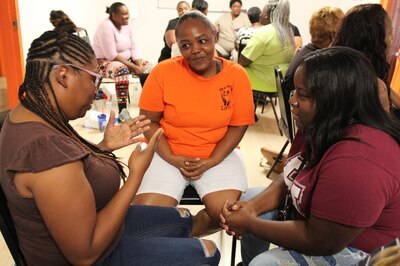
Patricia Robinson is advocating for her granddaughter, whose father is incarcerated. Robinson’s dream is for her to take the pain and loneliness she feels and “learn how to talk about it.”
Violet Odom, a mother of two, is advocating for her daughter, a soon-to-be middle schooler who is dealing with mental health challenges. Odom’s dream is for her daughter to “be able to live a normal life and use her voice to explain how she feels.”
Aimee Justice, a mother of three, is advocating for her son, who comes from a multiracial family. Her dream is for Memphis schools to become places where students of all nationalities can learn from each other.
Trenika Bufford is advocating for other kids in the system who, like her college-aged son, have been belittled by school officials. Through tears, she said she wished she listened to her son when he was younger. Her dream is to have a relationship with him again.
As the women shared their stories, Wallace and the group gave feedback on their delivery. As they practiced more, the fellows began to make more eye contact, speak louder and more directly, and use body language.
“People make decisions when they’re emotional,” Wallace reminded them. “Facts tell. Stories sell.”
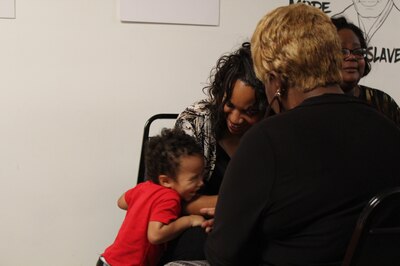
Effective communication will become even more important as the cohort prepares for their last session. That’s when they’ll work together to create a plan of action to tackle an issue in their community. This year, the group is already discussing taking steps toward unified enrollment, a centralized system that allows parents to easily compare schools in the same district.
And while that’s no small feat, it wouldn’t be the first time the group has tackled a project this large. Two years ago, graduating fellows knocked on about 10,000 doors throughout the city to inform other parents about local priority schools assigned to the state-run achievement school district.
That’s when alumna Kiara Jackson heard about the fellowship. Jackson, 24, was pregnant at the time with her third child, and she was living with her father in the North Memphis neighborhood when director Sarah Carpenter knocked on her window and told her about the program.
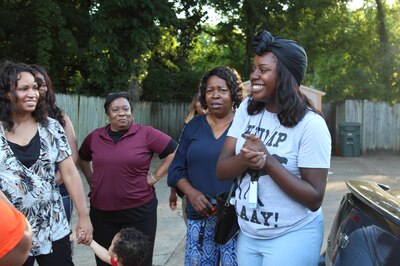
“I was a concerned parent,” she said, “but I didn’t even know the types of questions to get answers to.”
Shortly after, Jackson started going to Lift’s weekly classes, where she learned about quality schools in the area. Since joining the fellowship’s fourth cohort last year, Jackson had the opportunity to travel to Cincinnati and advocate for charter schools such as the one she’s working to get her daughter into.
“I enjoy the power that I have as a parent,” she said. “… With us being from low-income communities, they try to deny us our rights as parents. But our kids can get better educations”
When the class graduates next month, the fellowship will have trained 327 members, mostly women, since it launched in 2015. This past year, the group offered training for Spanish-speaking parents led by alumna Carmelita Hernandez. Now, the program is working on creating its first all-male cohort for fathers and grandfathers.
Funded in part by the Memphis Education Fund, the program will pay fellows, who often have to attend classes after work, $500 stipends when they graduate the course this year. (Chalkbeat also receives support from local philanthropies connected to Memphis Education Fund. You can learn more about our funding here.)
Editors note, July 17, 2018: This story has been updated to correct the number of people who have completed the program and other details about the fellowship.

